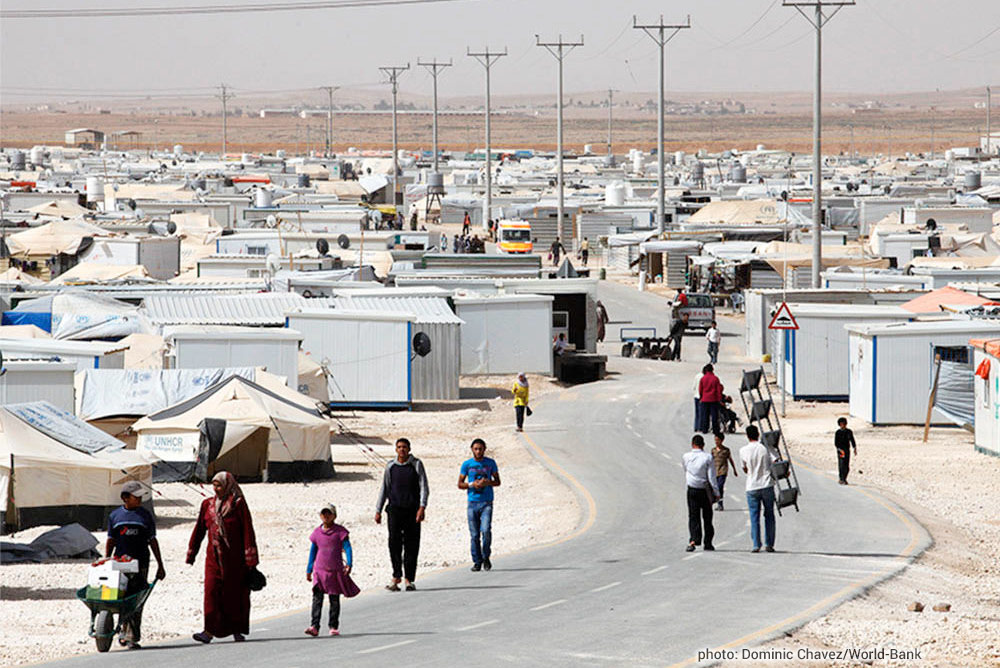With the crisis in Syria showing little sign of abating, millions of Syrians who have fled the country face an uncertain future as refugees. Of the estimated 4.8 million who have made it to the relative safety of neighbouring countries, hundreds of thousands of Syria’s young and most gifted citizens face stifled futures as refugees and displaced people. With the average protracted refugee situation being estimated by UNHCR at 25 years, postponing the needs of Syria’s youth is not an option that the world can afford to entertain. If a lasting solution for Syria’s future is to be found, educating Syria’s youth is the vehicle to achieve it.
Over the last year there has been a growing realisation in development and political circles that increasing Syrian refugees’ access to higher education presents one of the best possibilities to encourage integration, equip refugees with the skills they need to make a success of their new lives in exile and prepare for the rehabilitation of the country. This growing recognition is manifesting in increasing amounts of funding being made available for Syrian refugees at universities in the West. For example, universities across Europe are promising to lay out more places and funding so that newly arrived refugees can enrol in courses starting this Autumn. In Germany alone, three out of four universities have applied to take part in a £100 million ministry fund to encourage the integration of refugees into the higher education system.
While providing access for Syrian refugees to universities in Europe is encouraging, less attention is being paid to the higher education needs of those who haven’t moved beyond their neighbouring countries. Various estimates suggest that there are 100,000 Syrian refugees of prime university-going age in Turkey alone who are prevented from continuing their education because of poverty and other barriers. The situation in Lebanon, Jordan and Iraq is similar. If and when peace comes, refugees located in Syria’s immediate surroundings will be in the best position to return and rebuild their country. To do this successfully they will need skills – the kind of skills only third-level education can provide. A future Syria will need teachers, scientists, engineers, IT experts, business people, and a whole host of other skilled professionals.
Increasing access to higher education for Syrian refugees will not only provide the much needed skills for the country’s reconstruction but also lays the foundations for individual refugees and their communities to empower themselves in the present. Once a population has the knowledge and skills it needs to shape its own economic, social and political development, peace and prosperity follow. Refugees have the same capacity as everyone else to determine their future when the obstacles they face are removed. Access to higher education is crucial for activating this capacity.
In line with the Education Commission’s aim to mobilize new partnerships to enable education to have a positive impact on economic and social development, the Jamiya Project brings together European universities, Syrian academics, development organisations and technology to deliver higher education opportunities for Syrian refugees in their own region. Starting this August, in collaboration with the University of Gothenburg and the Norwegian Refugee Council, it will deliver blended online accredited courses in Applied IT and Global Studies at Za’atari Refugee Camp in Jordan.
Accessing education is surely the door to not only individual and community success, but also global peace, security and prosperity. By working together to provide this access, Syrian refugees can be empowered, solutions to the crisis can be found and the future can be bright. With a sustained collaborative effort, we hope that the Jamiya Project can help unlock that door.
Paul O’Keeffe is an Academic Adviser for the Jamiya Project. To learn more about the Jamiya Project, please check out Jamiya.org or email Paul@jamiya.org.

